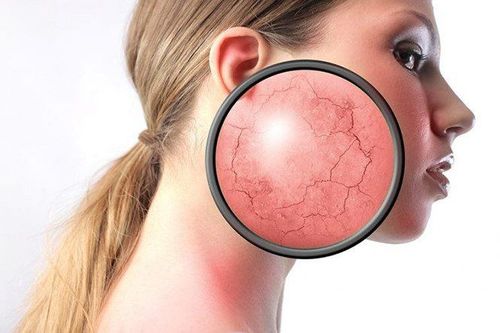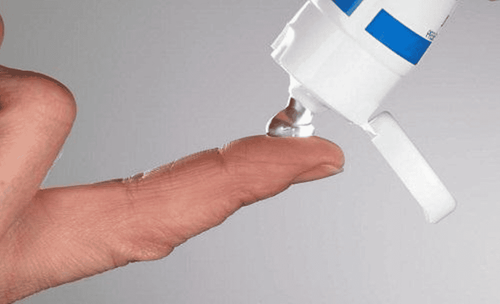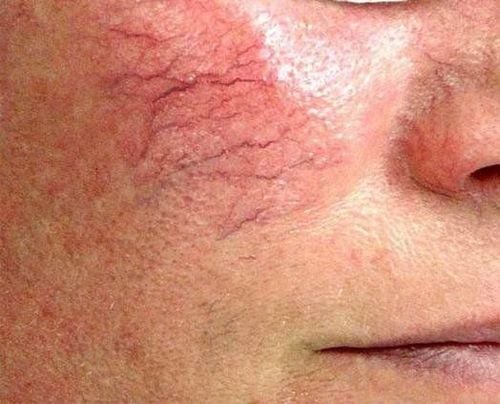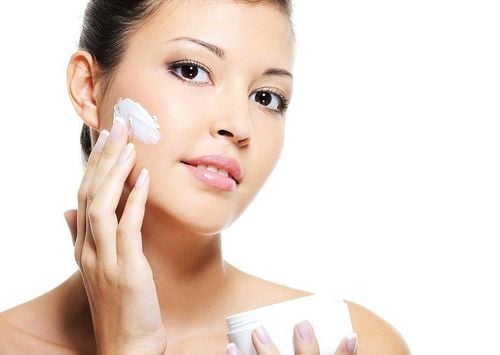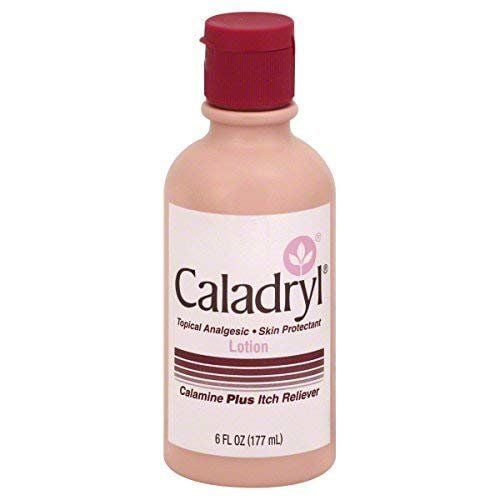This is an automatically translated article.
Applying a vitamin-rich diet is considered a method to help the body fight aging. However, due to a number of factors, the dietary intake of vitamins may not meet the recommended requirements. Therefore, we can add vitamins such as D, E, K, C from supplement products to help ensure this requirement.1. The relationship between aging and vitamins
Aging, which can be defined by the time-related decline of physiological functions necessary for survival and fertility, is also seen as a process by which most people I want to slow down the aging process.Some of the main causes of aging include: cumulative cellular damage caused by reactive molecules called free radicals and the shortening of telomeres, structures located at the ends of chromosomes may play an important role in cell division.
Although aging is thought to be inevitable, increasing human lifespan and slowing the aging process have been the focus of scientific research for decades. Through that research, scientists have identified a large number of substances with anti-aging properties, many of which can be used as supplements by people looking for natural ways to reduce weight loss. aging rate.
So, what vitamins help the body fight aging. Getting the right vitamins will help slow down the aging process as well as bring about effective skin care. Taking care of your skin is an essential part of your health regimen. In fact, the skin is considered as the largest organ of the body. Health professionals will make recommendations to you to keep your skin healthy: limit your exposure to the sun's harmful ultraviolet (UV) rays and wear protective sunscreen when you're exposed. with sunlight. But the sun is not bad. Just 10–15 minutes of daily exposure will help produce vitamin D throughout the skin. Vitamin D is one of the best anti-aging vitamins for your skin, while also adding vitamins C, E and K to create high efficiency for the skin protection process. When you make sure you get enough vitamins your body can keep your skin looking healthy and young. This can lead to a reduction in: dark spots, red spots, fine lines, enlarged pores, or excessive dryness of the skin. Essential skin vitamins are available in supplement form, but they are also found in skin care products.

Áp dụng chế độ ăn giàu vitamin được xem như một phương pháp giúp cơ thể chống lão hoá
2. Vitamins that help the body fight aging
2.1.Vitamin D Vitamin D is normally formed when your skin absorbs sunlight. Cholesterol converts to vitamin D when this happens. The vitamin D is then absorbed by your liver and kidneys and transported throughout your body to help make healthy cells. This includes the skin, where vitamin D plays an important role in skin color. Vitamin D can even help treat psoriasis.Calcitriol, a man-made version of a vitamin D that humans produce naturally. Calcitriol is a topical cream that is effective in treating people with psoriasis. Research testing the use of calcitriol for the skin has found that calcitriol helps reduce the amount of inflammation and skin irritation in people with psoriasis, plus it may have little effect. adverse side.
Experts recommend a daily vitamin D intake of 600 IU per day. You may need more if you're pregnant or over 70.
Alternatively, you can increase your vitamin D intake by:
Sun exposure for a period of 10 minutes a day (check with your doctor first, especially if you have a history of skin cancer) Using fortified foods , such as: breakfast cereals, orange juice and yogurt Use foods that naturally contain vitamin D, such as: salmon, tuna and cod 2.2. Vitamin C Vitamin C is found in the body in high concentrations in the epidermis (outer layer of the skin) as well as the dermis (inner layer of the skin). Its antioxidant properties and role in collagen production help keep your skin healthy. This is why vitamin C is one of the key ingredients found in many anti-aging skin care products.
Taking vitamin C by mouth can enhance the effectiveness of sunscreen applied to your skin to protect from the sun's harmful UV rays. Vitamin C does this by reducing cell damage and helping the body's healing process. Vitamin C can also help the body fight the signs of aging because of its important role in the body's natural collagen synthesis. It helps heal damaged skin and in some cases, reduces the appearance of wrinkles. Getting enough vitamin C can also help repair and prevent dry skin.

Dùng vitamin C bằng đường uống có thể nâng cao hiệu quả của kem chống nắng bôi lên da của bạn để bảo vệ khỏi tia UV có hại của mặt trời
Eat more citrus foods, such as: oranges, grapefruit, tangerines... Use foods that provide other plant-based vitamin C, such as: strawberries, broccoli, and spinach Drink orange juice Take supplements, as recommended by your doctor Seek anti-aging skin treatments with vitamin C to treat dryness, redness, wrinkles and age spots 2.3. Vitamin E Similar to vitamin C, vitamin E is also classified as an antioxidant. The main function of vitamin E in skin care is to protect against sun damage. Vitamin E plays a role in helping the skin absorb harmful ultraviolet rays from the sun when applied to the skin. Photoprotection refers to the body's ability to minimize damage caused by UV rays. These effects can help prevent dark spots and wrinkles.
Normally, the body can produce vitamin E through sebum - an oily substance released from the pores of the skin. At the right balance in the body especially the skin, sebum helps to keep the skin regulated and prevent dryness. If you have particularly dry skin, vitamin E can help combat a lack of sebum. Vitamin E also helps treat skin inflammation.
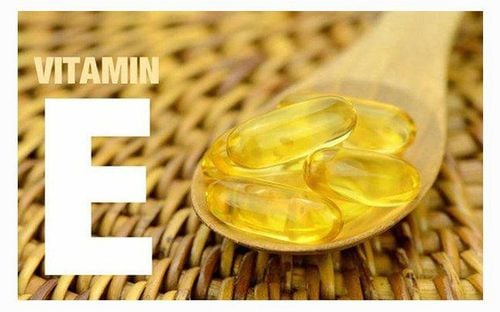
Tương tự như vitamin C, vitamin E cũng được xếp vào danh sách của một chất chống oxy hóa
Include more seeds in your daily diet such as almonds, hazelnuts and sunflower seeds Take a multivitamin or take a separate vitamin E supplement Use topical products that contain both vitamin E and vitamin C (this may be more effective at providing optical protection than products containing only either) 2.4. Vitamin K Vitamin K is essential to assist the body in blood clotting, helping the body heal wounds, bruises, and areas of the body affected by surgery. The basic functions of vitamin K are also seen to be involved in helping certain skin conditions, such as: stretch marks, spider veins, scars, dark spots, stubborn lower circles your eyes.
Vitamin K can be found in topical creams and can help treat a variety of skin conditions. Doctors often prescribe creams containing vitamin K for patients who have just undergone surgery to help reduce swelling and bruising. This activity can help speed up skin healing. However, studies on the effects of vitamin K on the skin are more limited than with vitamins E and C.
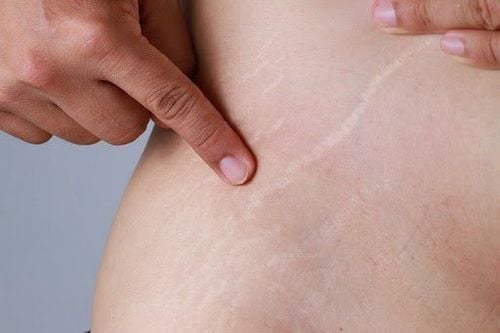
Vitamin K có thể giúp cải thiện một số tình trạng da như rạn da, tĩnh mạch mạng nhện,...
3. Essential vitamins for skin health
Since vitamins are essential for the health and functions of the body, vitamin deficiencies can have adverse effects on the skin. Because vitamins C and E play an important role in protecting your skin from the sun, a deficiency in either of these vitamins can increase your risk of skin damage, including skin cancer. .Although vitamins are essential for skin health, you probably already get enough of them through your daily diet. Blood tests can help determine if you have a vitamin deficiency. You should only take vitamin supplements with the guidance of a medical professional to prevent overdose.
Please dial HOTLINE for more information or register for an appointment HERE. Download MyVinmec app to make appointments faster and to manage your bookings easily.





